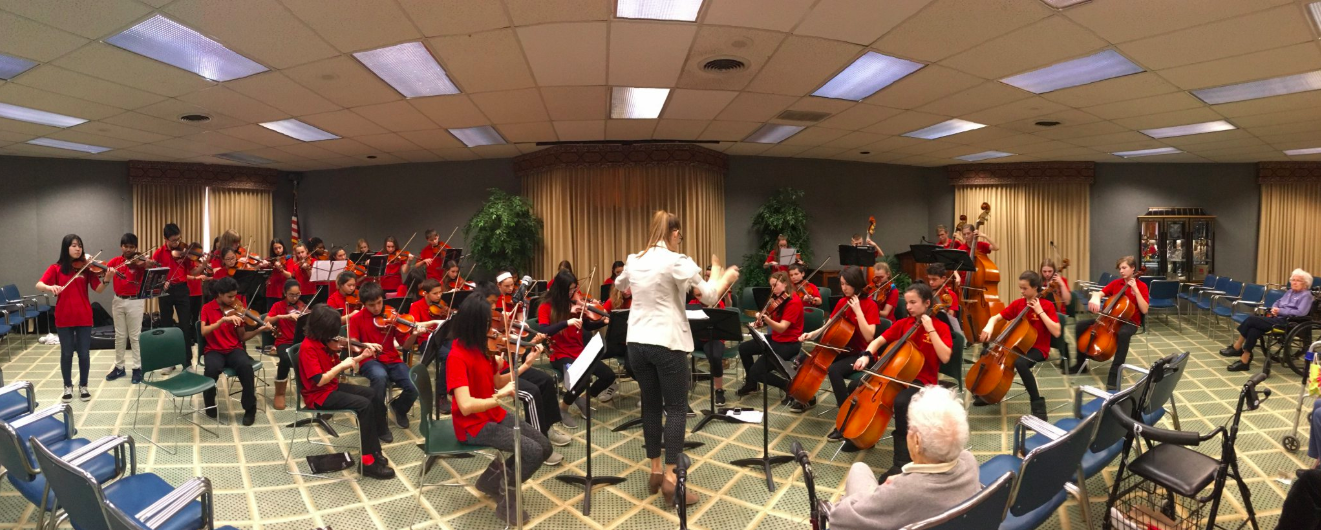“I’m so shocked.” My previous principal spoke that phrase nearly 20 times when I told him I was leaving the school and the profession.
I couldn’t help but wonder, “How can he be shocked?”
None of my coworkers were. Though many expressed authentic gratefulness for my time and work at the school, nearly all seemed to feel a sense of relief for me. Others seemed to feel some small envy or regret: “Sure, there’s plenty of other things I’ve thought about doing, plenty of times I wanted to change, but it’s too late for me now.”
Naturally, six months out now, some things have started to fade into nostalgia. I remember sweet students, those who said my classroom was the only one where they felt safe, those who said I showed them they could, those who cried to be losing their “favorite teacher.” I can only be grateful to have had this kind of impact. But after two years, I had to admit this work was not sustainable for me for the next 35 years of my career.
Table of Contents
Why a broken system?
Since I’ve begun studying how people work (by recently beginning my Masters in HR), I’m discovering substantial scientific validation and technical terminology for much of what I felt. Some of the main reasons I (and likely other young teachers) left the profession include: the lack of relevant employee development; the lack of a clear promotional path; the people-intensive, “always on” nature of the work; the weekly hours not reflected by pay; the growing “parent is always right” mindset; the general atmosphere of frustration, under-appreciation, and burnout amongst career teachers; the lack of focus on employee care; and the expectation of constant improvement without the support, time, and growth mindset necessary to accompany it.

Laura teaching two of her former students
(That list felt very long as I typed it. It is long, and it makes me feel sad. And, also sometimes guilty about not being able to “hack it”. Especially as someone who knows deeply the importance of educating our young people well. Doing some good counselor-encouraged work of simply naming emotions and not judging, categorizing, or stuffing them down.)
One of the top reasons employees leave jobs in any field is a lack of a path for promotion. As a motivated worker, I felt there was nowhere for me to go in teaching (other than principalship, and after witnessing their burnout, I was not interested). Sure, you get your masters degree and move over/up the pay scale, but I realized that I could be at the same “level” for the remainder of my career no matter how hard I worked or what I accomplished. I know this sounds superficial. Perhaps those who stick with teaching are more selfless than me, sustained by the intrinsic rewards of their work?
How do we develop and support teachers
“Can we trust teachers to know what they need to do well for their students instead of micromanaging them until we lose them?
Working now in higher ed. administration (HR department at Temple’s Fox School of Business) and having a window into the world of business, I believe employee development in public education needs an overhaul. First of all, businesspeople spend a LOT of time thinking and learning about somewhat basic interpersonal skills: communication, conflict management, teamwork, leadership, etc. I was frustrated by both widespread pettiness/poor communication amongst coworkers and poor leadership by people who taught well and cared deeply but had no training in effective management of people. Certainly, leadership is never perfect in any field, but why do we leave educators so completely in the dark here? I think most educators would agree that their work would be more positive and fulfilling if teachers were able to collaborate and communicate better.

Laura conducting her middle school orchestra
Furthermore, teachers should have professional development specific to their subject area. Administration should prioritize and value teachers’ attendance at conferences where they glean inspiration from like-minded people about their specific subject matter! Beyond coming back with some cool lesson plans or new ways to incorporate technology, teachers need this time to have their “cups filled” and be reminded of the WHY. Business owners wouldn’t make their IT teams miss a beneficial tech conference for an in-house development session that is largely unapplicable to their day-to-day work. Can we trust teachers to know what they need to do well for their students instead of micromanaging them until we lose them?
The next issue probably has the most complicated solution (if any!): as an introvert, the people-intensity of teaching (especially little people with SO many constant needs/questions) became unsustainable. Introverted teachers – how do you do it? The most obvious solution would be decreasing class sizes, but as an orchestra teacher working with small lesson groups, my class sizes were already pretty small (and well-behaved). Maybe teaching just isn’t a fit for my personality? Or, maybe we need realistic expectations for ourselves: remembering that you can’t be everything to everyone all the time, even your students? I think there’s a pressure on school teachers to care and pour themselves out to a breaking point.
What do we do when parents aren’t right? When they don’t support reasonable and appropriate consequences? When their child would never do that thing their teacher saw or heard them do? While I’m all for questioning the system and the status quo (certainly schools have not done punishment perfectly over the years…), how did we reach a point where the parent is always right, and if they don’t support the consequences for their children, we simply have to continue enduring bullying/abusive behavior toward other students and ourselves? Though nearly all the parents I worked with during my two years of teaching were supportive, kind, and understanding, it only takes a few either to destroy your passion/drive for teaching OR ruin your professional career. In business terms, the sheer amount of stakeholders/clients (100 students, approx. 200 parents, administration, school board, etc.) compared to my teacher’s salary felt completely out of whack.
Another major consideration was the weekly hours compared to my salary. Working in the Philly suburbs, my salary was pretty comparable with many entry-level positions, so the level of pay was not my complaint – my issue was what was expected of me time- and intensity-wise considering that pay. Sure, plenty of people work 60-hour weeks, but many of those people are in fields like client services, finance, or tech where they make far more than a teacher’s salary. I suppose you could bring up the fact that teachers get summers “off”, but that erratic work-life balance did not work for me, even with those 2 months over the summer. Another facet here is the self-martyrdom and constant competition for busyness amongst teachers. I saw so much judgement and tab-keeping: when are others leaving, whose car is in the lot the latest, who hasn’t even seen the sun for the past three months, etc. What if teachers could work well for the education of the next generation with creativity and compassion and then leave when their paid hours end, at least most of the time?
Self-care in teacher-care
“If employers aren’t genuinely caring for teachers and actively encouraging self-care, how can teachers engender these beautiful things in our students?”
During my two years of teaching, my school pushed to measure, encourage, and create a sense of belonging for students involving mindfulness, self-care, and healthy thought patterns. I LOVE this. This is such a good shift. Sadly, without including teachers, it will never be effective. I think a student-focus is a noble cause, but it’s an honorable sword on which too many teaching careers fall to die. If employers aren’t genuinely caring for teachers and actively encouraging self-care, how can teachers engender these beautiful things in our students?

Creativity takes mindfulness. Some corporations even include time for on-the-job meditation/mindfulness practices for employees. As a teacher, it often felt like the worst of both worlds: no time for or encouragement toward mindfulness AND constantly increasing expectations for innovative improvement. Constant growth in our work requires support from admin, a frequently primed and authentically lived growth mindset, and time to brainstorm and experiment. Your schools are probably covered with various bulletin board iterations of growth mindset for students, but teachers need it, too! You need to be able to attempt something new and know that if it fails, coworkers and admin will not laugh in derision or be disappointed but communicate they are proud and desire to help you succeed in the future.
The reality
“Teachers are heroes, and I will never say otherwise, but you are also humans and have limits.”
I wish I could tie this up nicely with a bow: “Well, I guess we’ll all just have to pull together and keep doing the best for our students.” I will not say that. Because all teachers know it’s not that easy.
I know it’s easy for me to diagnose all the problems in my fancy, newly-discovered HR jargon. I certainly do not have all the answers. Maybe, once time has gently and slowly peeled the scales of cynicism from my eyes, I’ll be ready to re-enter the educational world from the HR side. At the very least, I hope reading this can be validating…it IS hard. You are NOT crazy.
I will leave you with this: please take care of yourself. See a counselor or therapist. Find a mentor. Know that you are not responsible for your students’ misbehavior or their parents’ sometimes poor responses. Refuse to judge your coworkers but rather find ways to encourage and build them up. Use a sick day even if you’re not bedridden with the flu. Teachers are heroes, and I will never say otherwise, but you are also human and have limits.




Brava, Laura, for your honesty and insight.
Wow! Incredible insight into the mind of a teacher! It felt like this article was written about me as a teacher who left after 20 years. It makes me wonder if my career would have been different if I would have heard these things 15 years ago.
Shared this on Facebook and your words resonated with my teaching community. People carry too heavy a load in public education, and they choose another path, or they struggle on with weary hearts. A rare few thrive. Many in their first decade in my profession have longingly spoken of how many years until retirement. Not a sustainable mentality. Thanks for putting words to our experiences, Laura. Keep writing.
Well done, Laura! Your kindness and dedication to the children of the Delaware Valley will always be remembered and appreciated by countless students and parents. No matter where your career path leads, you will always be a superb and talented music educator. I applaud your.courage to spread your wings and fly, as well as your courage to share your deepest thoughts with your colleagues and friends. I wish you all the best that life has to offer. Perhaps, one day, our paths will cross once again. If ever I can be of any assistance, feel free to contact me!!
Tim
Wow, Laura, after only two years in the profession, it’s amazing what an excellent job you did of summing up many of the frustrations of teachers today. Three points that resonated with me were parents (and progeny) who are always right, micromanagement by supervisors, and feeling under appreciated for all that you do considering how the “extras” can impact other aspects of your life. I always considered teaching as more of a calling than just a job/career. So, I wasn’t necessarily in it for the money and certainly didn’t mind going above and beyond…a pat on the back, a few words of praise…even just an acknowledgement, go a long way. Especially since working harder doesn’t get you a promotion as it does in the business world. It makes me sad that someone as talented, enthusiastic, and hard-working as you has left the profession. Wishing you much success and fulfillment in your new career path
.
Sincerely, Kathy Grim
PS-It makes me wonder, after reading you article, why you didn’t consider pursuing a career involving writing. You have a gift!
Laura I support your Wise!!! decision. You gave teaching a chance and knew it was not for you. Thank God we have the right to change our pathways and with much agony and contemplation you did. CONGRATS!!! Grandpa Hurst
[…] not alone. It’s no coincidence that our most-read blog post this past month was one about quitting teaching. Teachers are burnt out, and we’ve only just […]
Wow. Everything you said here. The difficulties of teaching as an introvert, the erratic work-life balance with “summers off” and holiday breaks but stress with taking a personal day. I taught elementary music for two years and had been having a lot of mental health struggles (which teaching didn’t cause, but certainly didn’t help). I’m still looking for a job in another field. I’ve been offered three different high school choral positions. But I can’t do it. It really says something when you’d rather take on the stress of a job search and unemployment then go back to teaching and education…Thank you to our teachers still doing the work! Please, PLEASE take care of yourselves!
And thank you for writing this!
[…] what happens when burnout feels unsurmountable? For Laura Long, burnout led directly to her leaving the profession. I think the trick is to know that sometimes the right call is to leave as Laura […]